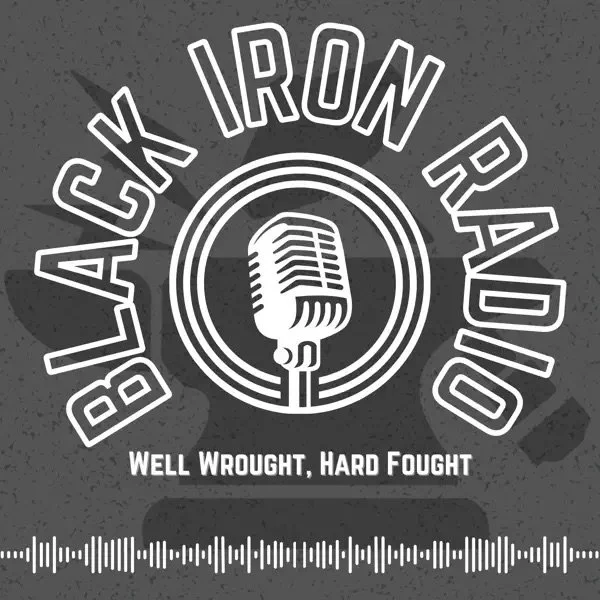So You Want to Manage Stress Better
In this blog post, we’re expanding on key takeaways from our latest podcast episode on stress management. We break down the conversation with actionable insights on handling stress through nutrition, recovery, and mindset shifts. If this resonates with you, be sure to check out the full episode for an even more in-depth discussion!
BLACK IRON RADIO EP. 224: SO YOU WANT TO MANAGE STRESS BETTER?
Morgan, Krissy, and Ryann chat about stress management, blending personal experiences with professional expertise. They break down what stress actually is, where it comes from, and why perception and adaptation are key to stress resilience. From the role of nutrition and sleep to managing physical stress through movement (and even touching on financial and existential stress) they explore improving the body’s response to all forms of stress.
📲 Listen & Subscribe: Apple Podcasts | Spotify
Understanding Stress: The Good, The Bad, and The Ugly
Stress is an unavoidable part of life. It’s our body’s natural response to demands and challenges. But not all stress is bad. There’s good stress—the kind that pushes us to perform better and adapt—and bad stress, the kind that feels overwhelming and impossible to manage. Stress isn’t just psychological; it affects us physically, mentally, and emotionally. And when we don’t regulate it, the effects can be long-term and harmful.
At Black Iron Nutrition, we see stress in all forms. It’s not just work deadlines, family illness, or political chaos—it’s also training stress, recovery demands, and the constant balancing act of life. In our recent podcast, we (Krissy, Morgan, and Ryann) dove deep into the realities of stress and shared our personal experiences managing it.
How Stress Shows Up in Daily Life
If you’re an athlete, stress isn’t just about your job or personal life—it’s also about how much load you’re putting on your body. Training is stress. Performance pressure is stress. Poor sleep, under-fueling, and life’s chaos all compound to create a total stress load.
As coaches, we see how stress manifests in our clients daily. Some key stress indicators include:
Poor sleep quality (trouble falling asleep, waking up exhausted)
Low energy levels and constant fatigue
Changes in appetite (either not hungry or craving everything)
Performance declines in the gym or on the trail
Increased irritability and emotional ups and downs
If you’re constantly feeling overwhelmed, it’s worth taking a step back and assessing what’s adding to your stress bucket.
The Impact of Chronic Stress on Health
Long-term, unmanaged stress doesn’t just make you feel run down—it has real consequences:
Immune function: Chronic stress weakens your immune system, making you more susceptible to illness.
Digestion: Stress can slow down digestion, cause bloating, and disrupt gut function.
Hormonal health: Cortisol, the body’s main stress hormone, can become dysregulated, leading to issues like poor recovery, sleep disturbances, and even menstrual irregularities.
Mental health: Anxiety and depression are often exacerbated by unmanaged stress.
Managing stress isn’t about eliminating it entirely—that’s impossible. It’s about regulating your response to it and building resilience over time.
How to Regulate Stress and Recover Better
One of the biggest mindset shifts in stress management is understanding that stress is a dial, not a switch. You’re never fully “unstressed,” but you can turn the dial up or down depending on your coping strategies.
At Black Iron, we use self-regulation techniques to help clients develop stress awareness and resilience. Some of the best ways to mitigate stress include:
Nutrition Matters
Under-eating is a major stressor. It affects mood, energy, and performance. Prioritize enough calories, especially from whole foods, to support your body’s needs.
Micronutrients play a role too—low vitamin C, iron, or hydration levels can increase feelings of stress and anxiety.
Recovery is Non-Negotiable
Sleep is crucial. If you don’t allow your body to recover, it will eventually force recovery (hello, burnout and injury). Prioritizing 7-9 hours of quality sleep can dramatically improve stress resilience.
Active recovery and rest days are essential. Overtraining without enough downtime is a recipe for chronic stress and stalled progress.
Manage What You Can Control
If doomscrolling through social media stresses you out, limit your exposure.
If you know you have a high-stress day ahead, don’t push yourself to hit a personal best in training that same day.
Hydration matters—a dehydrated body is a stressed body.
Build a Stress-Relief Toolkit
Ryann shared her personal method: keeping a stress toolbox in her phone’s Notes app. It includes quick 5-minute stress relievers (deep breathing, stretching), mid-range options (journaling, reading), and bigger interventions (massage, therapy, a full day off). Having go-to strategies ready can help you course-correct stress before it spirals.
Creative hobbies like pottery, puzzles, or even solving a Rubik’s Cube (Krissy’s latest stress-relief hack) can be powerful ways to turn your brain off and reset.
Stress is Manageable, But It’s on You
We’re never going to live in a stress-free world, but we can take control of how we respond to stress. The more self-awareness and resilience we build, the better we can navigate it.
As Morgan put it, “If you’ve got a limited capacity for stress, the onus is on you to control what you can. If Instagram stresses you out, don’t go on it when you’re already overwhelmed. If you didn’t sleep well, don’t push for a max lift that day.”
Building stress resilience takes time, but small changes add up. If you’re looking for more personalized help, Black Iron Nutrition coaches are here to guide you.
What are your go-to stress management strategies? Let us know in the comments!
🎙️ WANT MORE? SUBSCRIBE TO BLACK IRON RADIO!
If you enjoyed this conversation, check out more episodes of Black Iron Radio, where we cut through the noise and give you real, no-BS advice on feeling, performing, and looking your best. Each week we share practical nutrition, training, and wellness strategies and tips to help you succeed.
📲 Listen & Subscribe: Apple Podcasts | Spotify


